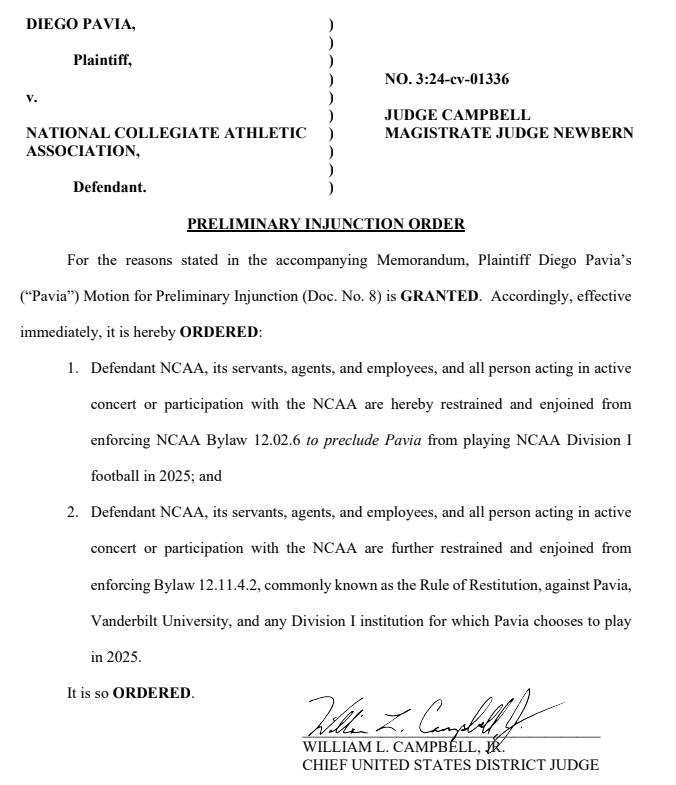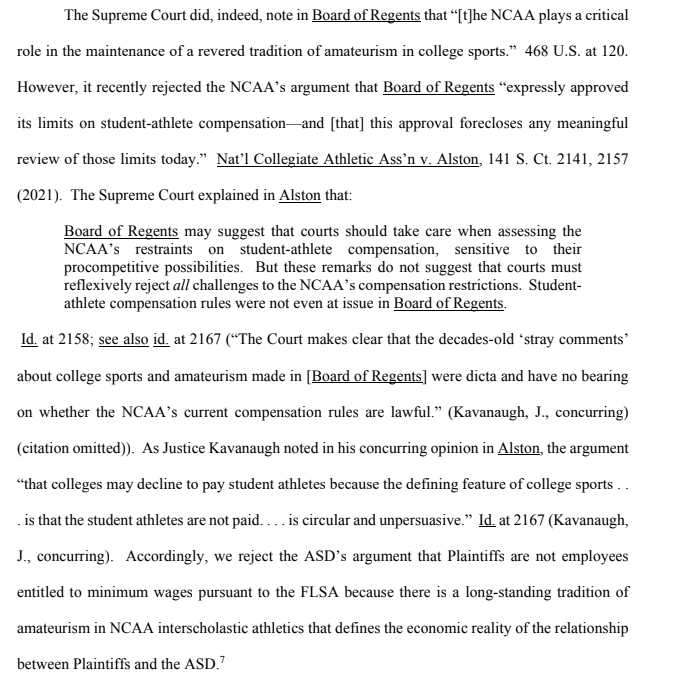Judge William Campbell of M.D. Tenn. -- the judge who in December granted Diego Pavia a preliminary injunction to allow him to play this season -- has denied a motion for similar relief by four other players: Christopher Bellamy, Demarcus Griffin, TJ Smith, and Targhee Lambson. 

https://twitter.com/samcehrlich/status/1940957859761602729
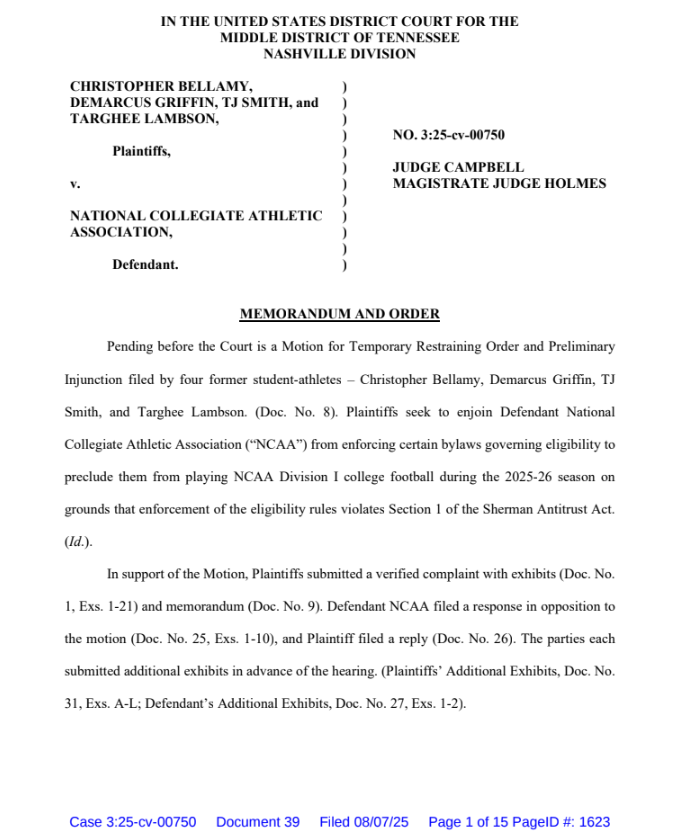
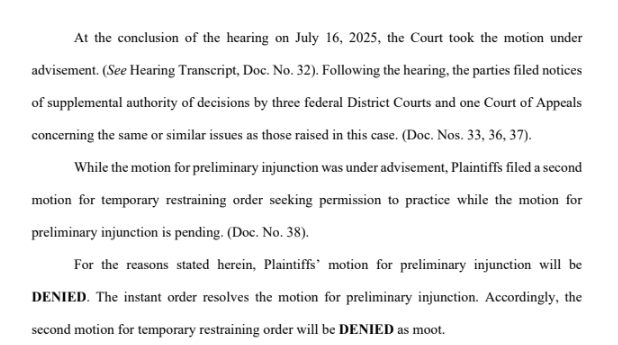
Judge Campbell noted while the plaintiffs relied heavily on Pavia, there are differences between the two cases -- namely that Pavia still had a year in his five-year clock and these players do not.
However, he punted on whether the five-year rule is legal.

However, he punted on whether the five-year rule is legal.
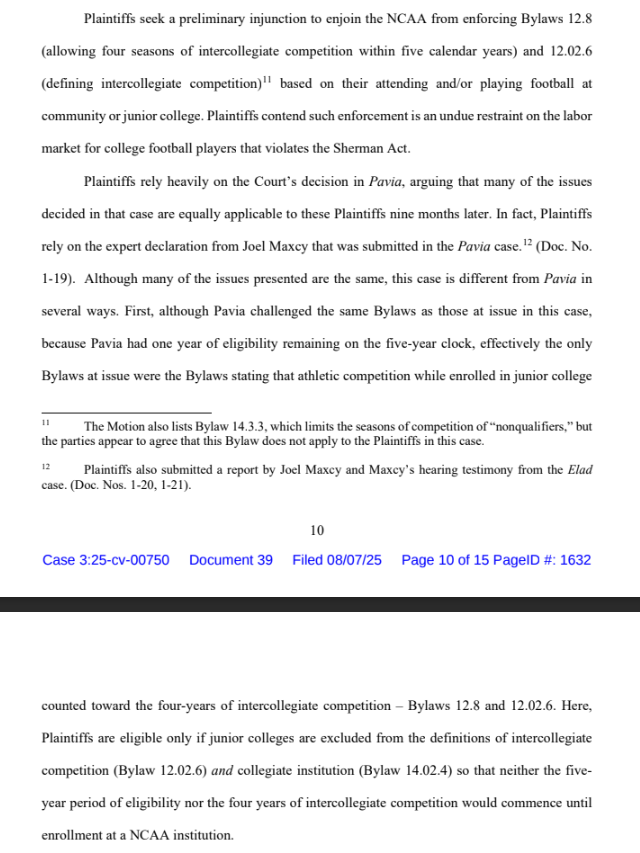

Instead, he found that the delay in filing this case shows that they cannot prove irreparable harm, as they could not show their harm is tied to playing this season. While Pavia showed that he needed immediate relief to negotiate NIL deals, these players did not. 


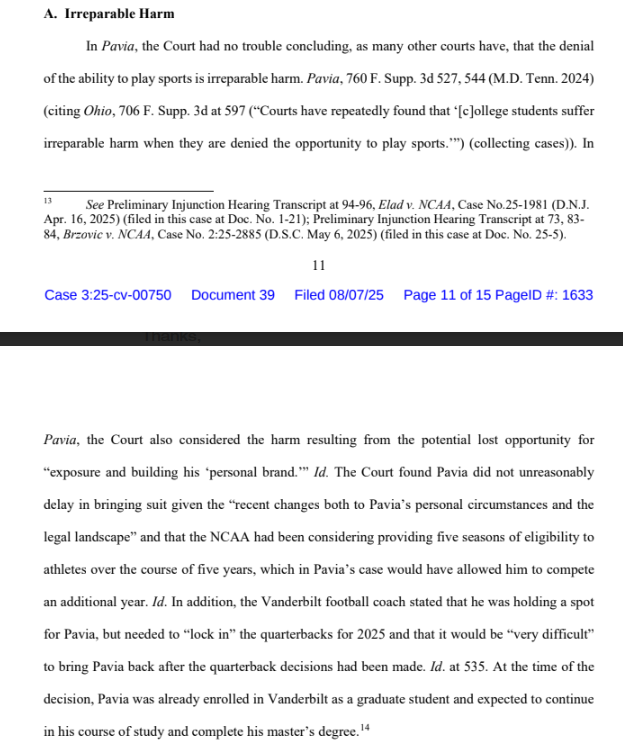
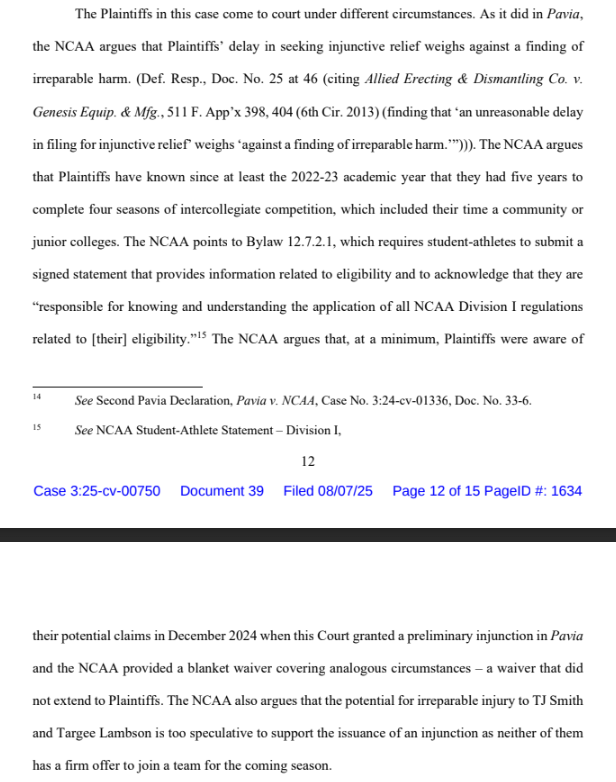
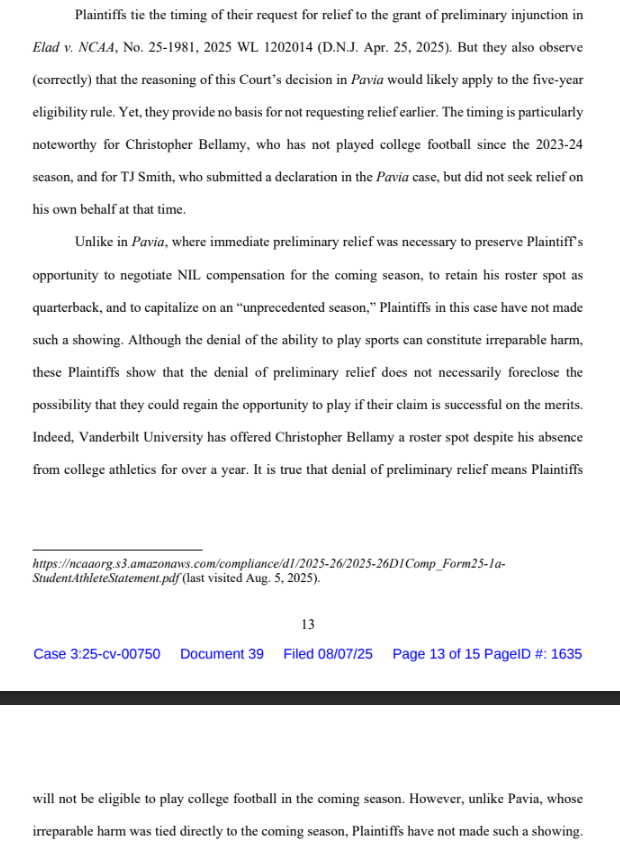
But while this is a win for the NCAA, it may be a Pyrrhic one. Because there's one line that *really* stood out: Judge Campbell agrees that his reasoning in Pavia "would likely apply to the five-year eligibility rule" as well.
That's not great for the NCAA.
That's not great for the NCAA.
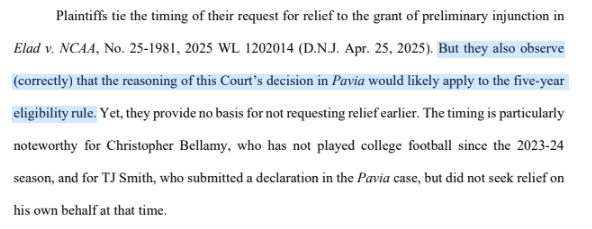
So a procedural win for the NCAA. But one that may honestly provide something of a roadmap for players in similar challenges in the future... at least in front of this judge.
(Your mileage may vary in other courts, given how dang inconsistent judges have been in these cases)
(Your mileage may vary in other courts, given how dang inconsistent judges have been in these cases)
In other words, this judge is not saying "The Five-Year Clock rule is legal" -- he's saying "Why did you wait so long?"
• • •
Missing some Tweet in this thread? You can try to
force a refresh




